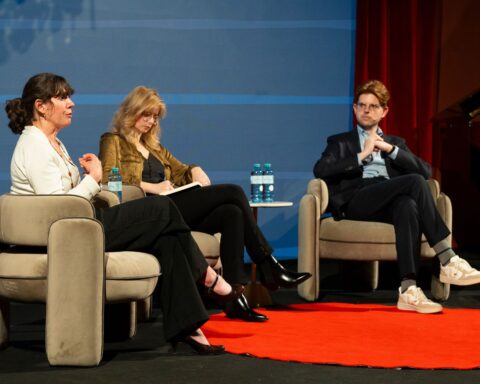Cancer and heart disease are two of the world’s leading killers. Is there a link between them? Is there a way to find a cure that can treat both diseases simultaneously?
During his talk at the TEDxVienna event last October, Dr. Nicholas Leeper spoke about the link between these two diseases and how they can be treated simultaneously.
Dr. Leeper is a Professor of Surgery and Medicine, Director of Vascular Research, and the Chief of Vascular Medicine at Stanford University. His clinical focus is on vascular medicine and cardiovascular disease.
He also leads a research laboratory, examining the genetic determinants of cardiovascular disease and studying atherosclerosis, vessel inflammation, smooth muscle cell physiology, and aneurysm formation.
After his TED talk, I had the honor to meet and interview Dr. Leeper. We talked about how he felt after giving his first TED talk, what inspired him to follow this area of research, the connection between cancer and heart disease, genome editing, and why the macrophage cell is his favorite cell.
Here is the full interview with Dr. Leeper:
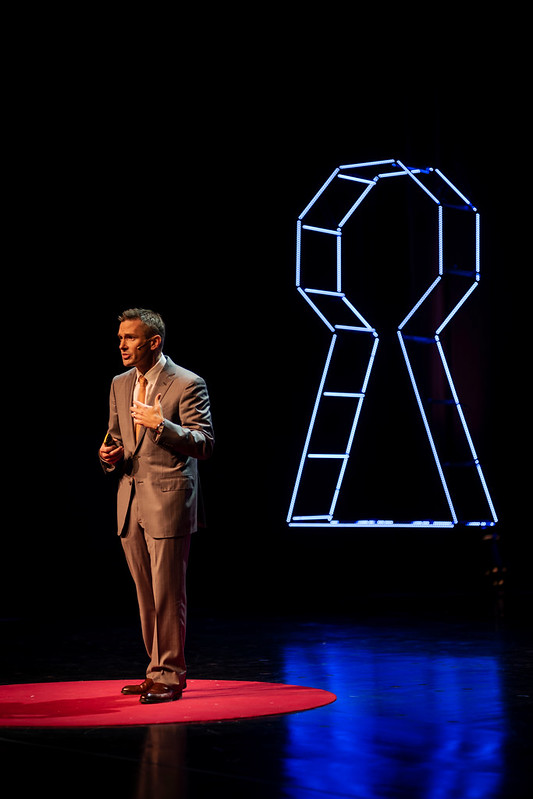
How do you feel after giving your first TED Talk? Was it any different from any previous talks you’ve given?
This experience has been completely invigorating. The diversity of topics has just overwhelmed me this morning, getting me to think about topics as broad as human memory speech and quantum physics.
So it has been incredibly inspiring, and I feel very energized after that talk.
Would you consider doing another TED Talk in the future?
I really enjoyed the process because I think as a scientist it’s very important to be able to explain your ideas to a general audience.
People that are able to do that are able to convey the importance of the topics they are working on. And when we’re trying to push scientific boundaries we need to have the support of as many people as possible.
What inspired you to follow this area of research? Any specific reason you thought ‘this is what I’m going to do’?
When I was a college student, I went to work in a genetics laboratory studying very rare diseases.
While I found that work very important and inspiring to help the few people that have those diseases, I realized that I wanted to work on problems that affect a huge part of our society.
So for me, the fact that heart disease is the leading killer of men and women made me want to commit my life to trying to solve that problem because I really want my life’s work to have a broad public health impact.
Did your research interest in the connection between heart disease and cancer come naturally or after discovering something that connects the two?
For decades, we’ve had the ability to treat blood pressure and cholesterol and help people quit smoking. All of these things have had measurable benefits.
But still, heart disease is the leading killer. That means there has to be something we don’t yet understand about this disease, something that we are not yet treating or addressing.
And that’s why I believe in the power of unbiased human genetics. It can show us the things that we’re missing that are outside of “the usual suspects,” the usual risk factors.
Our work has surprisingly led us to discover that many things that are important for heart disease seem to be coming from other disciplines like oncology or immunology.
I think we have to reset our mindset about things that matter for this disease or that disease because often, there is a lot of overlap, and that’s how we’re going to move the field forward.
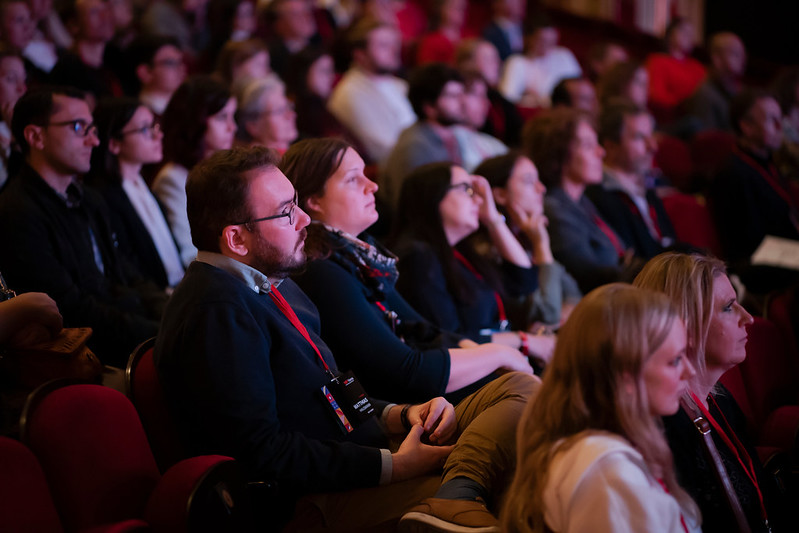
One of the experiments you mentioned during your talk was the one with mice under a healthy diet condition and the other under a high-fat diet. Previous research has found that consuming meat, mainly processed meat and red meat, can lead to higher cancer risk. An Oxford study has also found that red and processed meat is linked to an increased risk of heart disease.
Have you conducted any research that compares a carnivore diet with a vegan or vegetarian diet?
I think nutrition research is gaining extreme interest, such as intermittent fasting, benefits of the Mediterranean diet, etc.
I personally have not looked at different diets and their effect on how mice develop heart disease or cancer.
But I’ll say that those studies that I talked about, one of which did have a high-fat high-cholesterol diet the other one had a normal diet but in the setting of inducing a heart attack only, so there’s something about the changes in the body in mice with congestive heart failure or prior heart attack or high cholesterol that all seem to have the ability to promote cancer.
We don’t completely know what the biological mechanisms are, but the overlap seems to be pretty significant.
In your talk, you mentioned that using a drug or therapy will have dual effects against both of these diseases. Is there a natural way that we can use to prevent this kind of cancer genes other than using a drug or therapy?
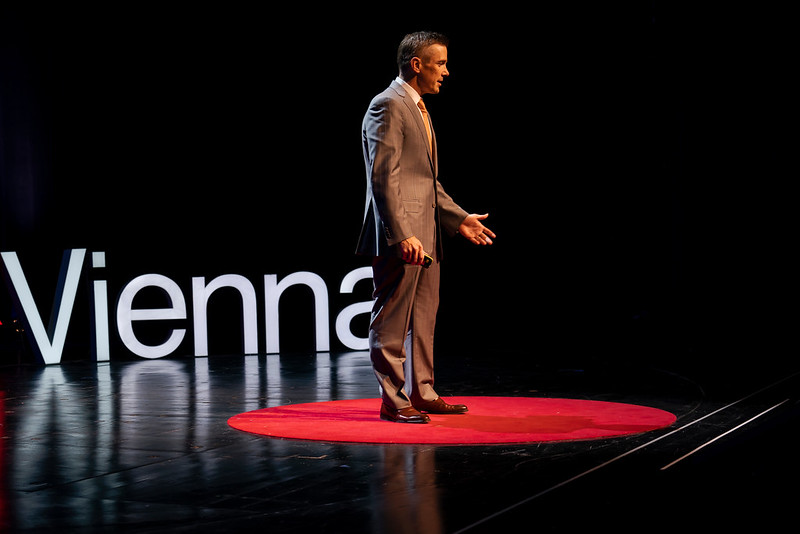
That’s a very interesting question. Typically we are born with our genes, and they don’t change much over our lives.
There are research teams looking at genome editing and the ability to potentially delete or correct pathological or dangerous genes. That’s very early technology, and there are ethical considerations about genome editing.
We believe in the power of identifying the products of those genes, including the proteins and factors that circulate in the body. And we hope that we can certainly treat established diseases and maybe even identify those risks and be able to prevent these diseases.
Are there any other fields where these combined disciplines can be helpful so they can fight against two or more diseases at the same time?
A lot of what our genetics team is doing is looking for common overlapping biology to see if we can learn about disease A from how disease B forms.
We think there is a lot of overlap between traditional cardiovascular processes with neurological processes. And we think this can give insights into Alzheimer’s disease, but also, especially, inflammatory diseases, autoimmune disorders, rheumatological conditions.
But I think that those are going to fall on the overlap between cancer and heart disease, which are increasingly looking to have significant overlap.
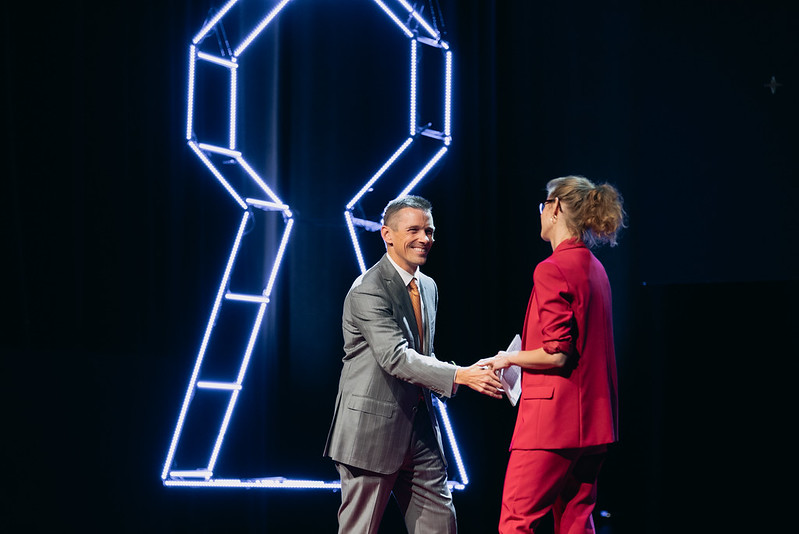
I think many people are thinking along these lines. And what you’re starting to see is a real focus on interdisciplinary research instead of classical discipline-driven research.
We’re seeing people bring tools from different fields of medicine and research together.
So people are thinking about inflammatory disorders or immune-mediated disorders instead of simply kidney disease or liver disease because the body comes from one cell when the egg is fertilized, and there is crosstalk between our organs in our system.
I think that the traditional thinking of this disease is separate from that disease, and this organ doesn’t interact with that organ is probably far too oversimplified.
We really need to pursue what is called the systems biology approach, where we look at the overall interaction of all the parts of the system and how they feed back on each other.
Since you mentioned the cells, can you please tell us a bit more about the fact that you have a favorite cell? How come you have thought of having a favorite cell?
I am struck by the elegance and simplicity of the human body and how a very ancient cell that developed Millennia ago to help us survive infections ultimately ends up having many other roles.
That particular cell, the macrophage, probably was originally meant to help us not die of infections when we were evolving as human beings.
Still, the fact the same cell type plays key roles in the build-up of plaque and heart disease and key roles in the development of cancer and that perhaps we can target those cells in different ways for different conditions speaks to the elegance of how our body was designed.
The fact that it is so plastic and able to be repurposed to do different jobs under different conditions – I find that biology truly beautiful, and that’s why I like that cell.

Since one of your goals is to present current research to a larger audience, have you thought of writing a book one day? If so, what would that book be about?
Well, gosh, I hadn’t thought about that. I certainly respect people that can summarize their life’s contributions at the end of the story. But I feel like the body of knowledge that builds science in our understanding of health and disease is like a great Cathedral where many investigators come together, and each places one or two bricks into the growing Cathedral.
A contribution that I want to make is to provide enough of these blocks that can help the Cathedral grow and then one day allow us to really tackle these complex problems.
We still feel like there is much to learn.
The incredible power of the new genetic tools that we have access to that we didn’t have access to 10 or 20 years ago, makes me incredibly excited for the discoveries that are going to come and help us learn the cause of the hidden risk that we can’t yet read and then to find new therapies to treat it.
I think that we are about to enter a golden era of scientific discovery, and I’m excited to play a small part in that.
Here’s his full talk at TEDxVienna UNTOLD:
To keep up with Dr. Leeper and his team’s research updates, visit the Leeper Laboratory.



